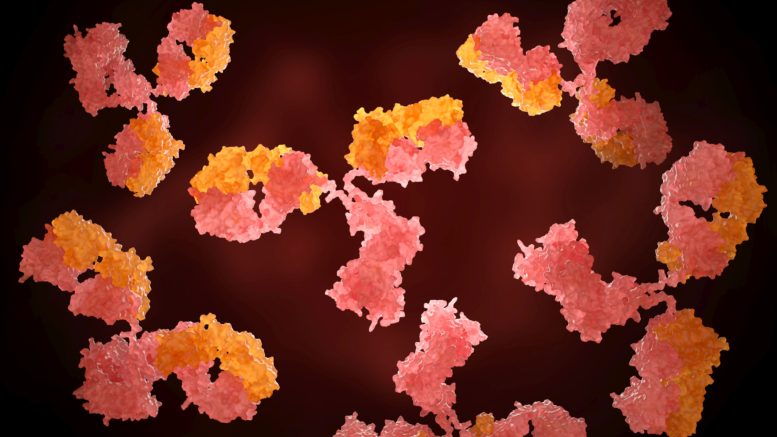Wondering why some COVID-19 breakthrough cases feel milder than others? A study led by researchers at the Uniformed Services University (USU) sheds light on this phenomenon, offering insights into post-vaccination immunity dynamics.
Published in Frontiers of Immunology on March 18, the study, “Immune and behavioral correlates of protection against symptomatic post-vaccination SARS-CoV-2 infection,” delves into the correlation between antibody levels and symptomatic SARS-CoV-2 infections, providing crucial clues for public health strategies and vaccination protocols.
The investigators measured antibody levels in serum and saliva samples from 176 vaccinated adults, collected from October to December of 2021, immediately before the 2022 Omicron wave. Then, they analyzed the frequency, severity, and duration of COVID-19 illness in participants between December of 2021 and April of 2022. The participants were generally healthy adults, all of whom had received two or three doses of a COVID-19 vaccine. A small percentage were also infected prior to the Omicron wave.
The investigators found that higher antibody levels in the fall of 2021 correlated with a lower likelihood of developing a symptomatic SARS-CoV-2 infection later on. Additionally, of those individuals who did develop symptomatic SARS-CoV-2 infections, those with higher antibody levels in their serum had shorter and less severe illnesses.
“These findings provide strong evidence that booster doses of the COVID-19 vaccine, given before peak periods of disease transmission, are likely to help protect against developing a highly symptomatic infection with SARS-CoV-2,” said Dr. Emilie Goguet, lead author of the study and research scientist at USU.
Current research on the COVID-19 vaccine has been focused on the vaccine's ability to neutralize the virus as a marker of how well the vaccine will work. Through this study, the investigators found that using a research assay to measure levels of antibodies that bind to the SARS-CoV-2 virus was just as effective at predicting risk of symptomatic infection as measuring the ability of a person’s blood to neutralize the virus. In other words, the investigators found that accurately quantifying how much antibody a person has that binds to the virus may be an easier way to predict effectiveness of COVID-19 vaccines. Notably, though, they found that two commercial assays used to quantify binding antibody levels did not perform as well as their research assay, possibly due to the limited upper range of antibody levels the commercial assays can measure.
Collaborators included investigators at the Food and Drug Administration, Quest Diagnostics, Henry M. Jackson Foundation for the Advancement of Military Medicine, Frederick National Laboratory for Cancer Research, Naval Medical Research Center, Walter Reed National Military Medical Center, Biological Defense Research Directorate, and the Defense Threat Resolution Agency.
Source:: Uniformed Services University of the Health Sciences
